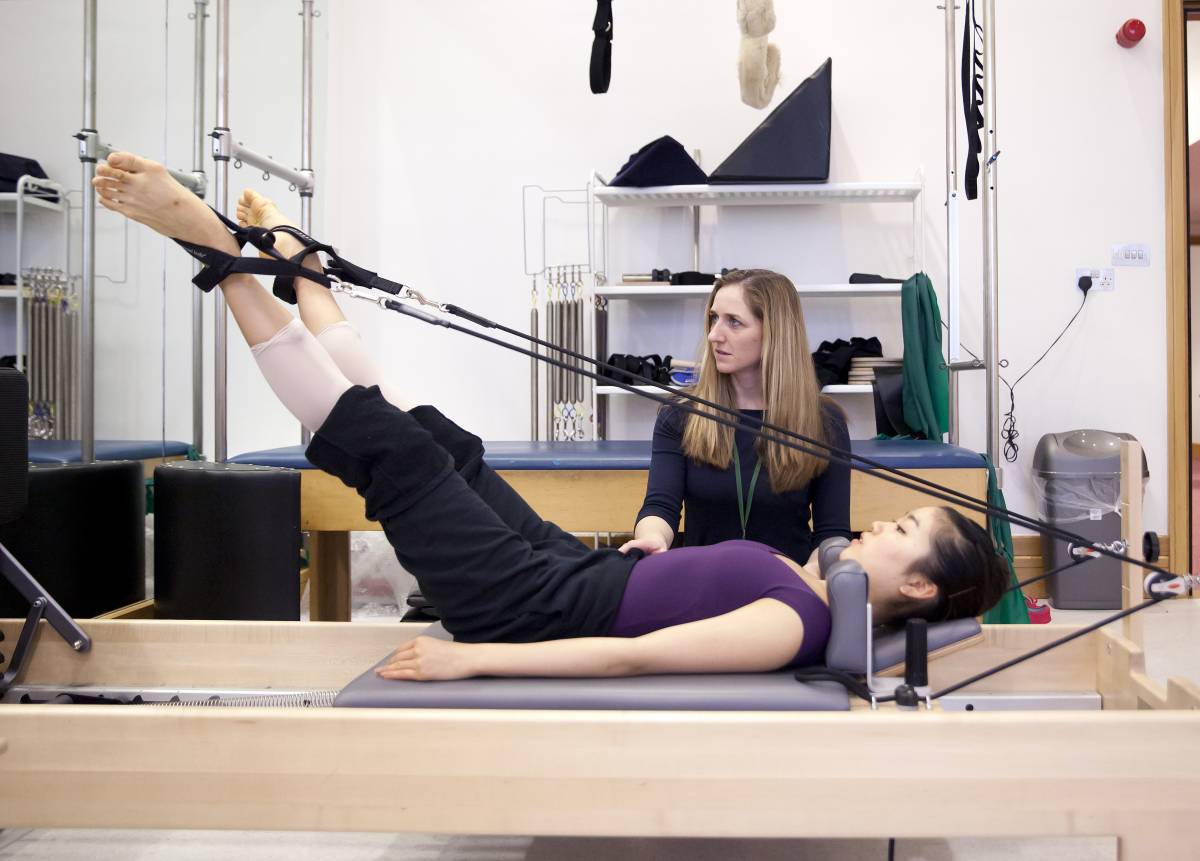Physio Karen Sherriff welcomes study that could boost performance levels at the Royal Ballet School
Physiotherapist Karen Sheriff is looking forward to playing her part in an ‘exciting’ research study to be conducted among traineee dancers at the Royal Ballet School in London. The study will be led by strength and conditioning coach Jamie Harding, who is working with the University of Essex to complete his PhD. It will examine how targeted weight training and other elite sports techniques can help to improve dancers’ strength and ‘reduce the risk of injuries while improving performance.’
Karen, who has held the post of head of healthcare at the school since 2016, said: ‘Research is hugely integral to us as a world-leading organisation. It helps us to answer specific performance questions, develops our practice and enhances our scientific understanding of our young dancers so that we can identify the most effective ways to support them as athletes.'
She added: ‘We choose to work with elite research partners to achieve this goal, and we are incredibly excited by our partnership with the University of Essex.’

Research goals
The findings will complement the work of the school’s Healthy Dancer Programme and provide insights into how it can optimise dancer development and training.
Healthy Dancer Programme
The programme is managed by a pioneering team of 20 healthcare professionals – including physiotherapists, clinical psychologists, performance nutritionists, sports physicians, strength and conditioning coaches, sports physicians, Pilates instructors, counsellors and nurses.
Through collecting data on dancers, staff create individualised programmes to support their physical and psychological health, helping them to balance academic studies with the demands of full-time training.
Jamie Harding: ballet is 'unique'
Researcher Jamie said: ‘Ballet is unique in that it is an aesthetic art and a high-performance sport – with exacting competing demands. Dancers perform feats that are unimaginable to mere mortals and our research will make sure their bodies are up to the gruelling demands.
‘The world of ballet training is changing and I’m excited to help develop sports science in this elite world. Through this research, we’ll help The Royal Ballet School optimise training techniques to ensure our students can maximise their undeniable potential.’
Research helps us to answer specific performance questions, develops our practice and enhances our scientific understanding of our young dancers [Karen Sheriff]
Five studies in total
The research will focus on how strength training can support young dancers to rehearse and perform safely and effectively as they mature. The study has five arms that are scheduled to end in early 2025. Louis Howe, programme lead at the University of Essex’s School of Sport, Rehabilitation and Exercise Sciences, has been named as the study supervisor.
As a strength and conditioning coach, Louis has supported national and international athletes as part of a London-based university’s student-athlete scholarship and performance sport programme. He has helped prepare athletes for elite competitions such as the British Athletics Championships, European Athletics Championships, Pan American Games, Commonwealth Games and Olympic Games.
Louis said: ‘Elite dancers face similar physical challenges to those of elite athletes, and it’s essential that they possess the physical preparedness necessary to withstand the associated stresses. That’s where strength and conditioning support can be helpful, as it can reduce the risk of injuries while improving performance.'
He added: ‘Our research aims to find the best ways to optimise the techniques used by practitioners to achieve these goals. Ultimately, we hope our findings will help elite dancers improve their physical preparedness and reach their peak performance levels.’
Dame Ninette de Valois founded the Royal Ballet School, which is based in Covent Garden in central London, in 1926. It also has a base at the White Lodge in Richmond Park.
Former students include Margot Fonteyn, Anya Linden, Kenneth MacMillan, Lynn Seymour, David Wall, Antoinette Sibley, Anthony Dowell, Marguerite Porter, Stephen Jefferies, Darcey Bussell and Jonathan Cope. For more information, click
Author: Ian A McMillanShare it with














